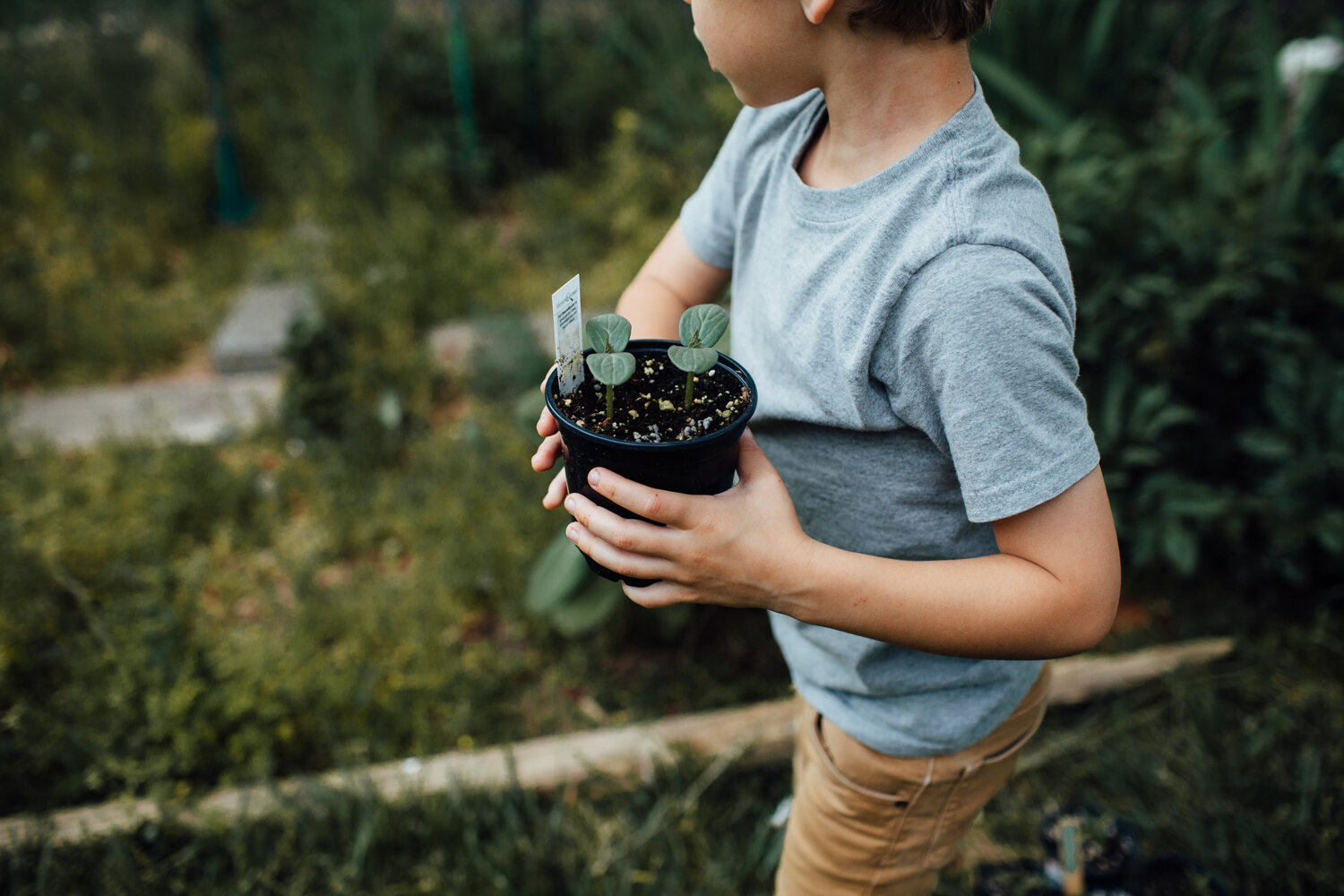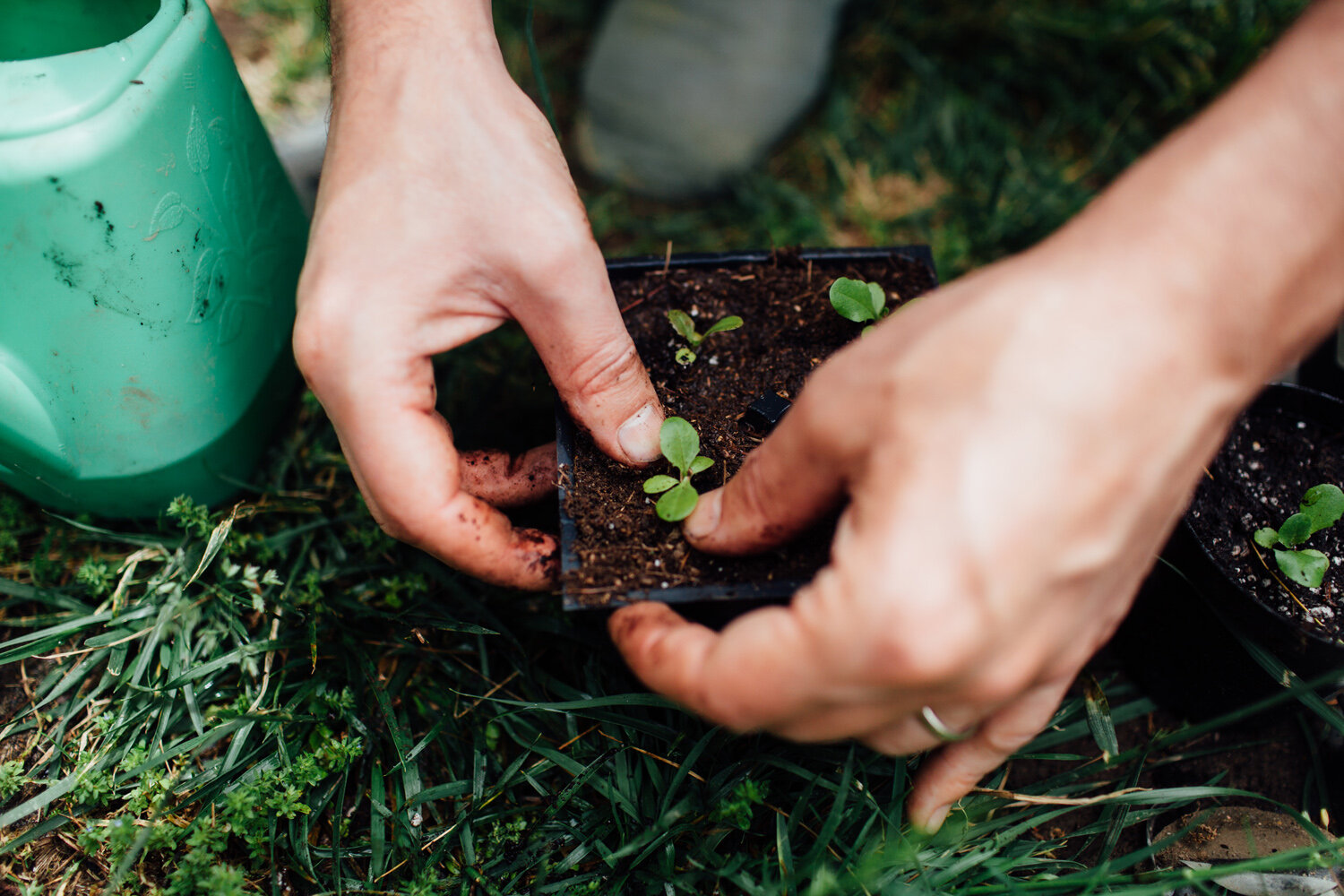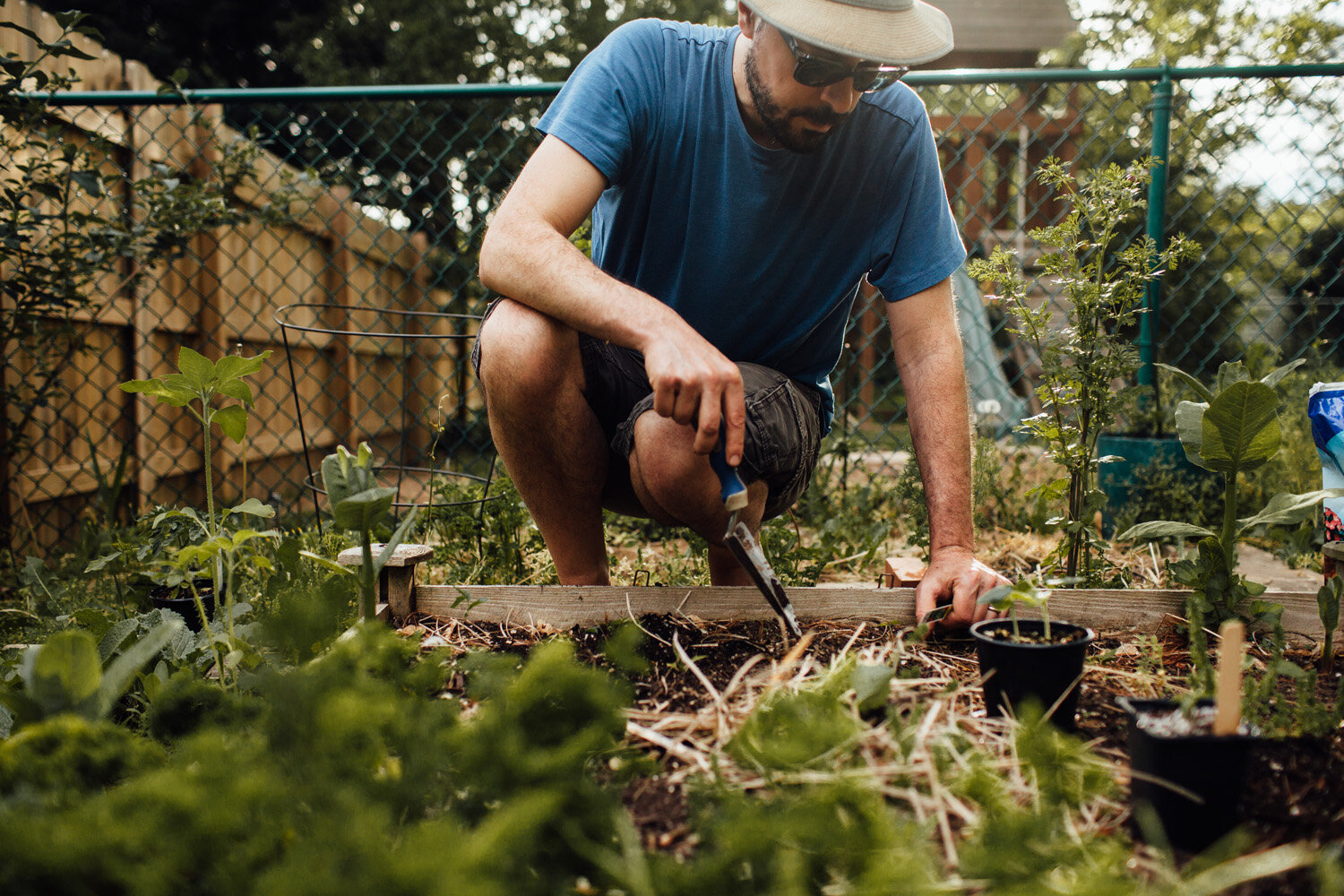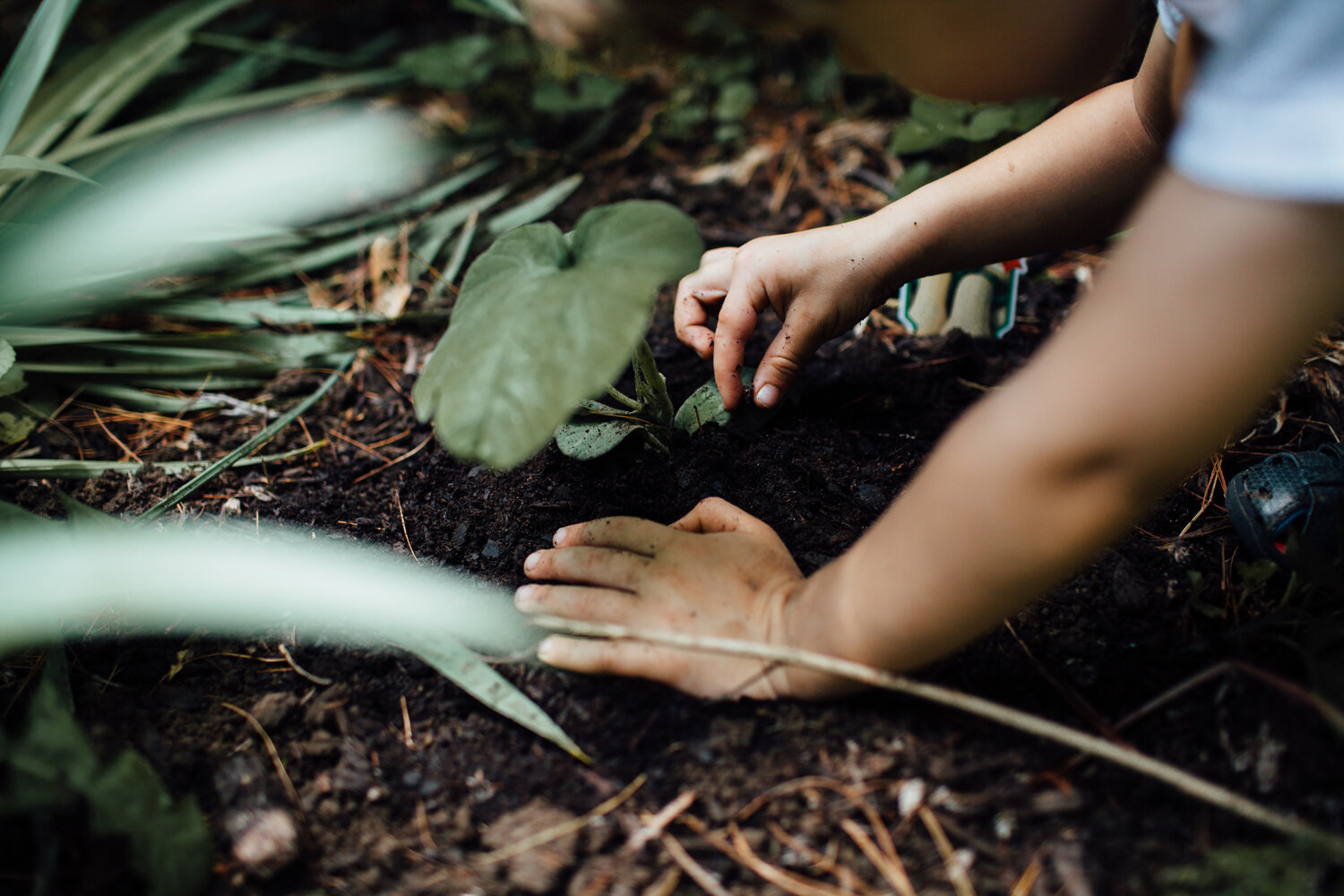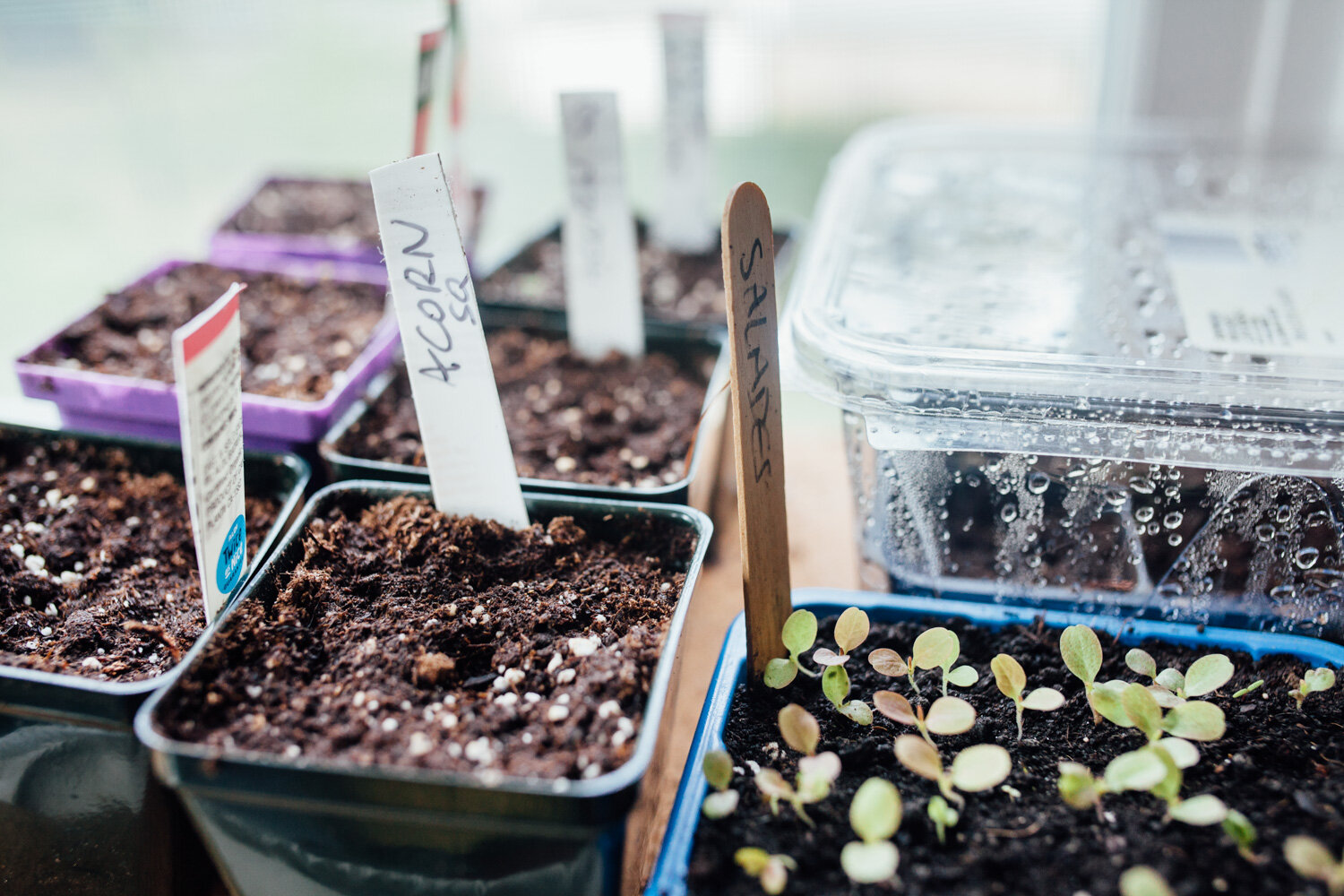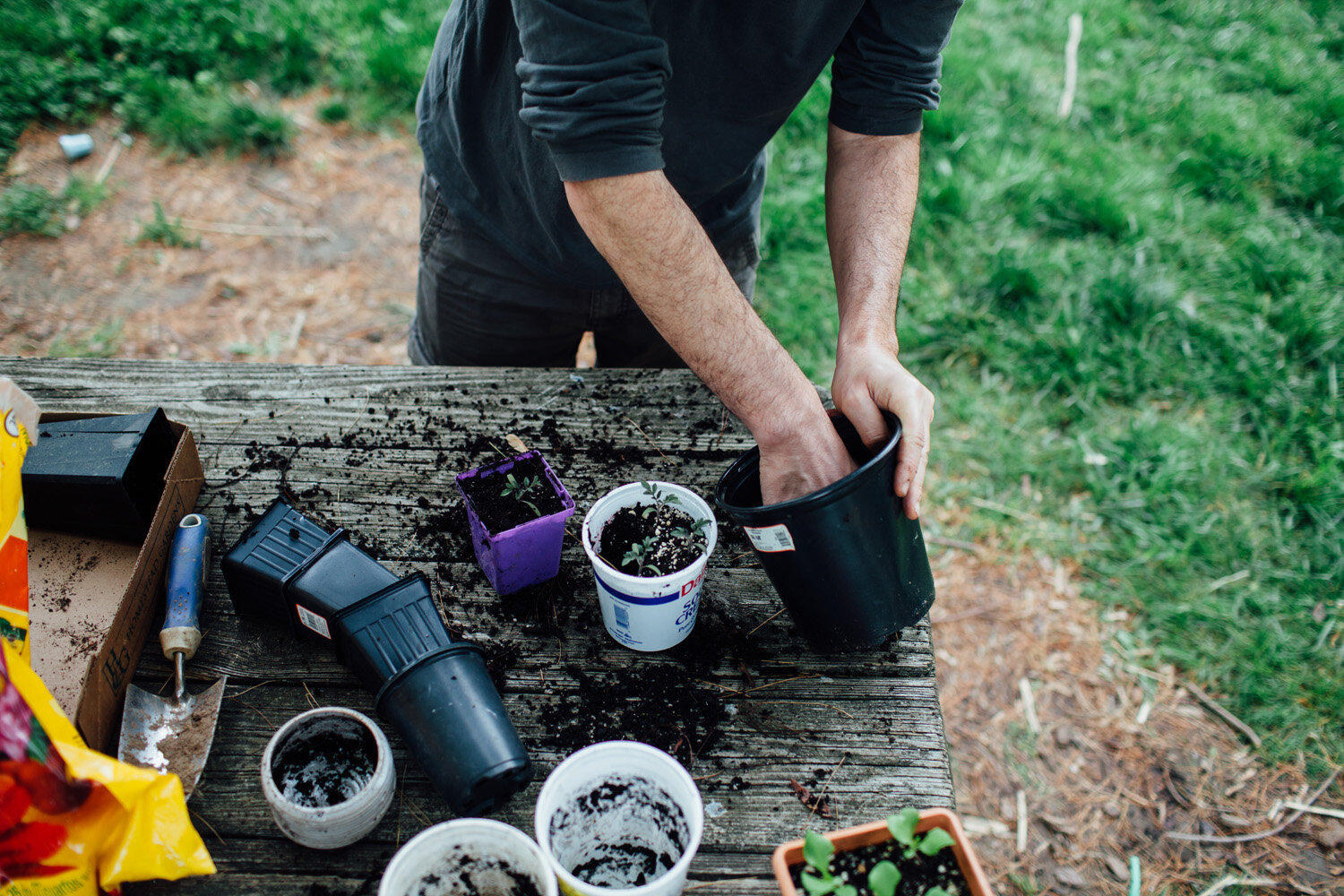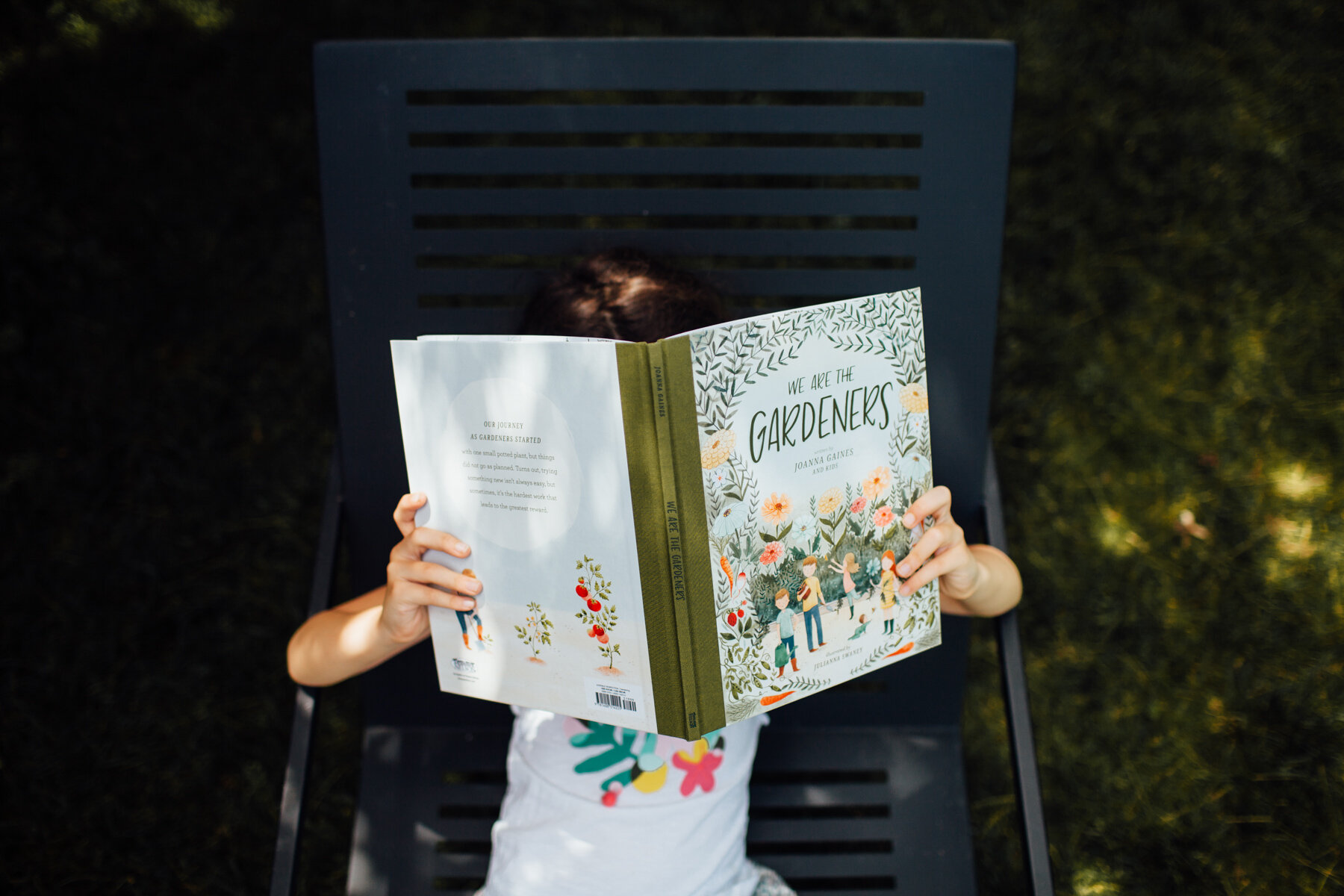Reuse, recycle, repurpose in the garden • Zero waste photographer in Maryland
This article was published in the April edition of my local newspaper The Hyattsville Life & Times.
Did you start a pandemic garden last year? I sure did, and I developed an obsession about growing my own food. Studies have shown that gardening improves health: You are closer to nature, you exercise, you eat a healthier diet. Growing your own garden is one of the best steps you can take to start living in a more sustainable way — at least most of the time. I quickly realized that there's a surprising amount of waste involved —think plastic, plants, seeds, natural resources. Here are some ideas to be more eco-friendly in the garden.
CHOOSE THE RIGHT TOOLS AND CONTAINERS
Repurposing or reusing things you already own is easy and cost effective. Compostable/ biodegradable pots are great, but they are designed to be single use and require energy to manufacture, package and transport.
For seedlings, you can use:
- Toilet rolls: Make four 1-inch cuts vertically around the bottom of the tube and fold them in.
- Newspaper rolls: Transplant your seedlings right into the garden (the paper will decompose naturally in the soil). Most printing inks are now soy based and safe to use.
- Aluminium cans, plastic clamshell (and similar) takeout containers: Make sure there are holes in the bottom or side to drain excessive water.
I found that eggshells and egg boxes are difficult to fill, and the boxes are very absorbent. But they sure look cute. When you need to transplant seedlings into bigger pots, use big yoghurt containers, juice (or milk) square bottles (cut an opening on a side) or plastic milk jugs. Cut off the lids of your bigger, clear plastic bottles and place them over your seeds to create a mini greenhouse.
For planters:
- Olive oil metal tins: Don’t toss those big tins that olive oil came in. Instead, upcycle them by cutting the tops off, washing the tins out thoroughly and using them as planters.
- I’ve seen worn-out old hiking boots, toilets, sinks, bathtubs, buckets and other such castoffs used as planters. Repurpose what you have.
Browse Craigslist, Freecycle, Facebook Marketplace or the alleys at Community Forklift to find used gardening products and equipment, such as pots, gardening tools, compost, chicken manure and more. You can also borrow.
If you’re looking for plant labels, try cut up yoghurt containers, wooden popsicle sticks (ask your friends to save them for you), old bamboo toothbrushes and hand-painted rocks.
MAKE THE MOST OF RENEWABLE RESOURCES
Don’t let natural fertilizers around you go to waste! Make banana tea by soaking your banana peels, which have very high levels of potassium, in water for a week. The liquid will enrich your flower and vegetable beds by giving your plants a happy nutrient boost. You can then dry the skins, grind them up and mix them in your soil to use as fertiliser.
Speaking of tea, you can mix your leftover tea leaves into the soil to make it richer. Also, urine is the absolute best to boost your seedlings. It is very high in nitrogen and an excellent liquid fertilizer (and compost accelerator). Dilute at a 10:1 ratio and apply to the root zone of fruiting plants like tomatoes, peppers and eggplant, and to leafy crops like cabbage, broccoli, spinach and lettuce, once a month.
If you don’t collect rain water yet, reuse cooking water. The water you use to cook your vegetables still has lots of good nutrients and is very beneficial to your garden plants (once it has cooled down). Think about saving some of your grey water, the water that comes from your sink and showers. Stick a bucket in the shower to collect water while you’re waiting for the hot.
THINK LOCALLY
There is a Facebook group, “Route One Corridor Gardeners,'' you can join for tips, tools and seed exchanges. If you wish to buy locally, Glut in Mount Rainier has a great selection of seeds, Denchfield Nursery and Hampton Nursery are based in Hyattsville, while Homestead Gardens is a little bit further in Davidsonville, but has a wide selection. Or visit a farmers market like Paint Branch’s in College Park on Saturdays 7 a.m. to noon, and Anne Arundel County Farmers Market in Annapolis on Sundays 10 a.m. to 1 p.m.
If you already have more seeds then you can use, consider starting up a little seed library in your front yard so you can share with your neighbors.
Life with kids is busy and ever-changing. How about slowing down? You’ll have photos of who you “actually” are and remember this season of life forever.
I am an eco-friendly business that tries NOT to harm the earth more than necessary by limiting plastic, finding sustainable products, spreading awareness, and planting trees.
You are one email away from having artful photographs of you and your tribe. Contact me now.

